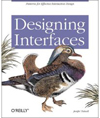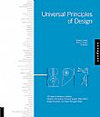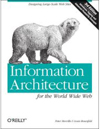Anyway these book are the books that I will read in that mythical 'when I have time' space I never seem to reach. As John Lennon said '...life's what happens while your making plans.' How true. Anyway check out the books below.
Universal Principles of DesignRecommended by Jorge Arango on http://www.boxesandarrows.com/view/oldies-and-goodies
William Lidwell, Kritina Holden, and Jill Butler
October 2003
100 design principles—concepts such as affordance, constraints, figure-ground, etc.—clearly explained. Includes many examples and illustrations. (As you’d expect, it’s also beautifully designed.)

Style: Ten Lessons in Clarity and Grace (9th Edition)Recommended by Liz Danzico on http://www.boxesandarrows.com/view/oldies-and-goodies
Joseph M. Williams
December 2006
You write. You write all the time: stacks of email messages, instant messages, text messages, reports, rants, and reviews. And you follow rules. You follow rules you learned in high school: don’t begin a sentence with “But,” don’t end a sentence with a preposition, and never use fragments. In a time where writing happens more often than not and where the rules no longer apply, we need a book to tell us how to break the rules elegantly. Truth is, they were never meant to be followed in the first place. Williams, in this 9th edition, presents a stunning set of guidelines on how to break the rules, and how to diagnose the problems with your own writing.

Designing InterfacesRecommended by Alecia Kozbial on http://www.boxesandarrows.com/view/oldies-and-goodies
Jenifer Tidwell
November 2005
I have found Designing Interfaces to be an invaluable resource. It is a collection of well-organized UI design patterns for a wide selection of platforms, desktop, web, mobile, and other digital devices.
Information Architecture for the World Wide WebRecommended by Javier Velasco on http://www.boxesandarrows.com/view/oldies-and-goodies
Peter Morville, Louis Rosenfeld
November 2006
I just got my copy of the Third Edition of Information Architecture for the World Wide Web by Morville & Rosenfeld. The previous editions have always been favorites and a must-have for all of us. This is a book that has been critical for the development of our field. It seems like the book has been thoroughly revised; I see new screenshots and new subtitles everywhere. It has been updated to include social classification and navigation concepts, and all those other things we’ve been discussing since the last edition. Some advanced findability notions are also considered, as well as more depth on user needs, enterprise IA, and strategy. There’s also more on deliverables than ever before. While sticking to roughly the same amount of pages as the Second Edition, this book seems completely refreshed. I look forward to have a chance to sit down and read it cover to cover.






